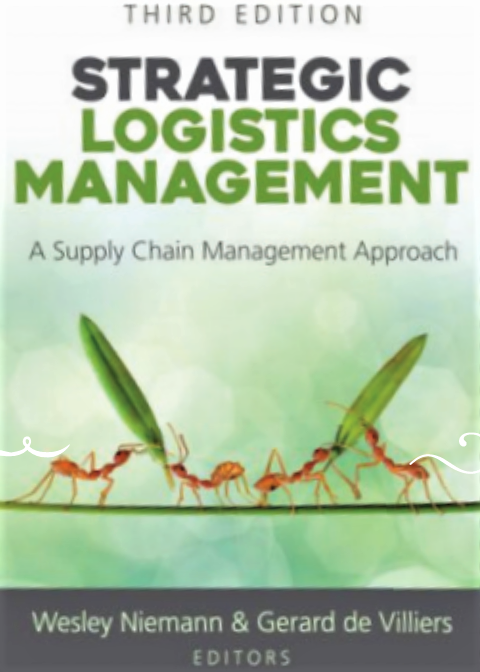Strategic Logistics Management: A Supply Chain Management Approach, Third Edition, edited by Wesley Niemann and Gerard de Villiers, takes a systematic approach to managing the entire flow of materials, information, services and finance from raw material suppliers, through manufacturing and warehousing, to the end-user.
The advent of globalisation increased complexity for companies, extending supply chains across large geographical areas and making them longer and more difficult to manage than ever before. Trends such as global economic shifts, increased consumer awareness, the rise in information technology, global pandemic outbreaks and climate change highlight a range of new challenges facing business.
Supply chains and their logistics activities are finding themselves within the public eye as governments and businesses struggle with the consequences of these trends. It is an increasingly difficult task to protect supply chains against disruption, tracking and tracing goods through an extended supply chain and managing the environmental impact of the logistics activities.
Strategic Logistics Management covers the operational and strategic aspects of all the components of business logistics from a supply chain management perspective. It focuses on the integration of all business processes that add value to the customer.
The book is divided into six sections for easy reference. Part A introduces logistics and supply chain management, Part B addresses the logistics functions, Part C investigates supply chain integration, Part D focuses on strategic considerations such as logistics sustainability, Part E includes contemporary issues such as city logistics and humanitarian logistics and Part F contains a range of in-depth case studies. Terminology is clearly explained and the main points are illustrated with practical examples. New chapters in this edition of the book include Demand and Order Management, Contract Logistics, Sustainable Logistics and City Logistics.
Subjects include the following:
- Customer service.
- Demand and order management.
- The supply management process.
- Inventory management.
- Operations and manufacturing.
- Transport management.
- Warehouse management.
- Reverse logistics.
- Information technology in the supply chain.
- Contract logistics.
- Network design and channel strategy.
- Global dimensions of logistics.
- Supply chain risk management and resilience.
- City logistics.
- Humanitarian logistics.




